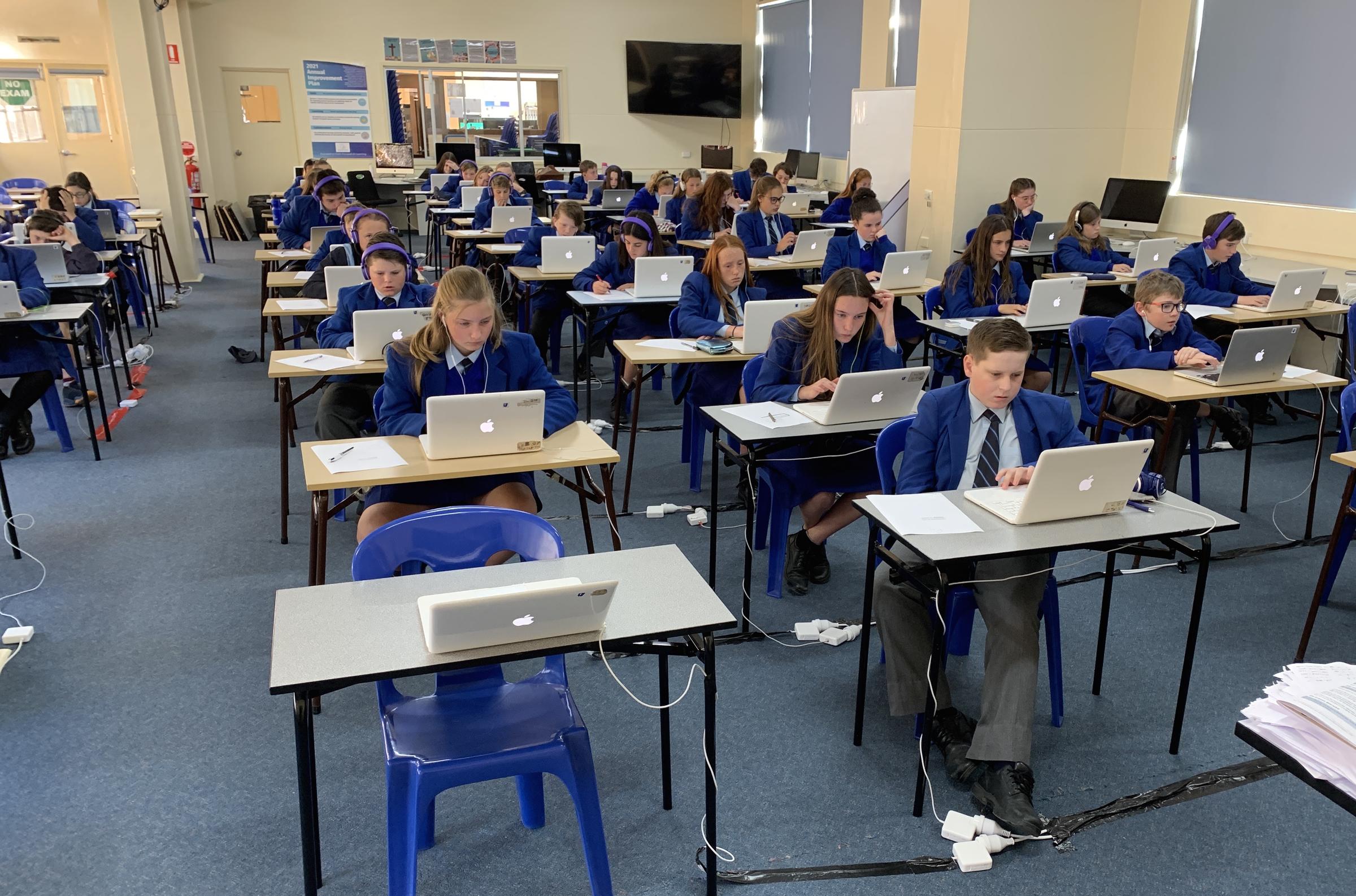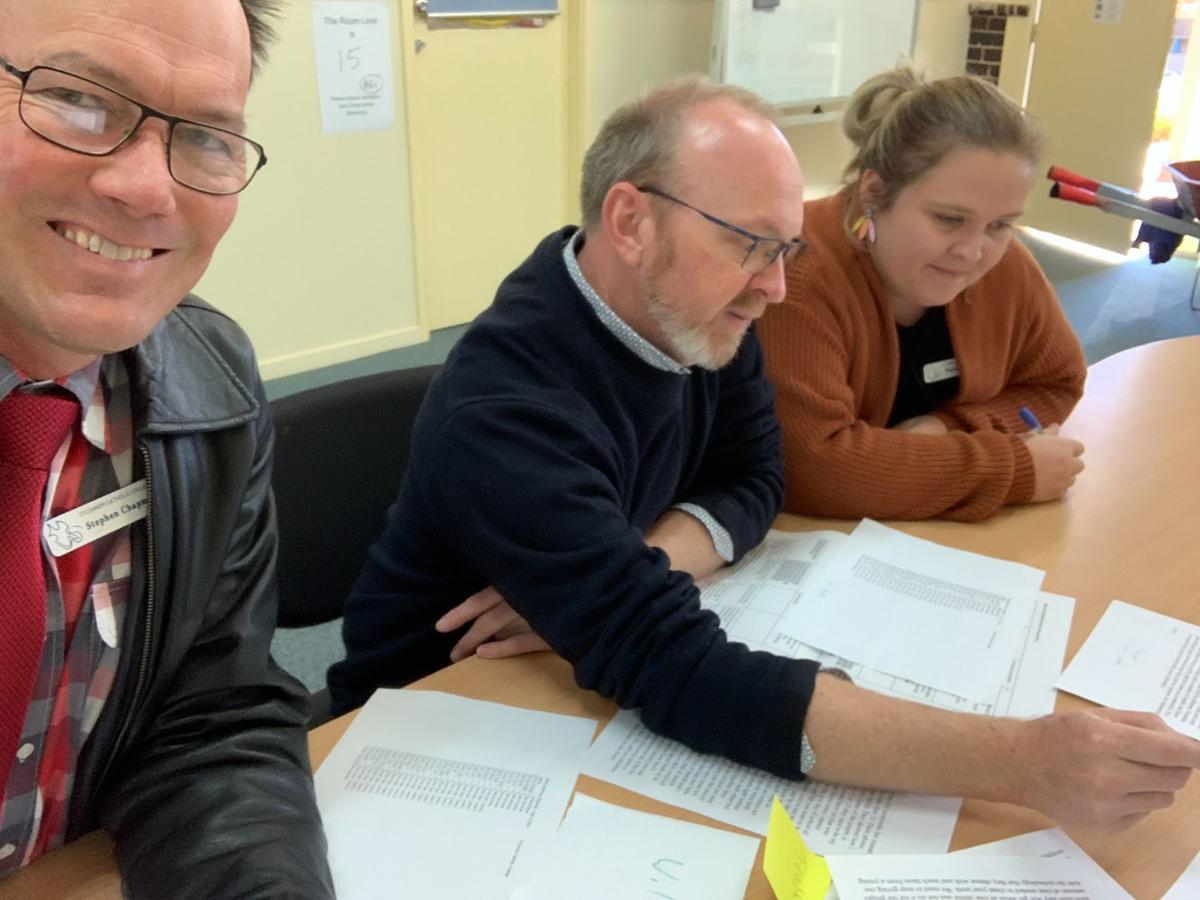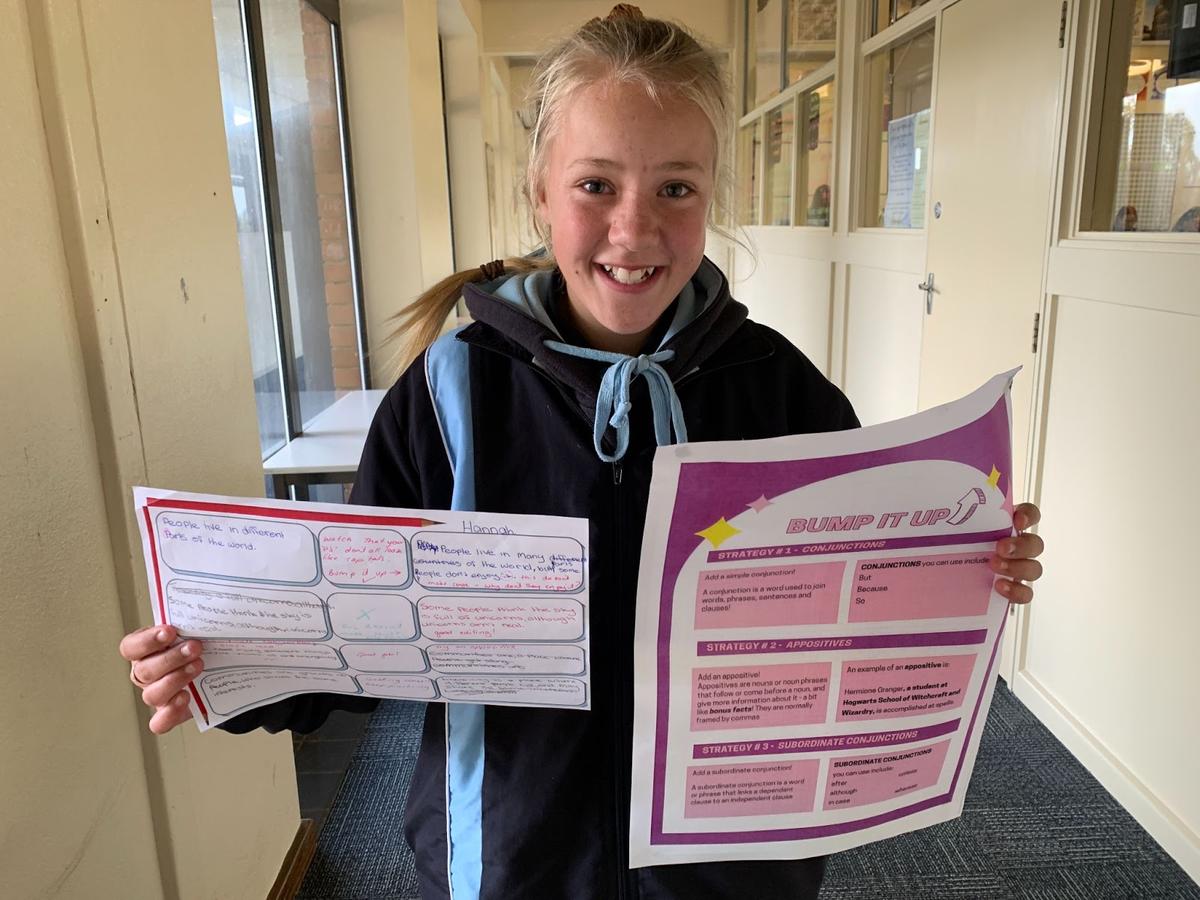Assistant Principal / Leader of Pedagogy
Mr Stephen Chapman

Assistant Principal / Leader of Pedagogy
Mr Stephen Chapman
There are obviously many skills that people need as they move through their lives. One of the most important of these is the ability to write effectively. This is especially important for our students in junior high school as it is well documented that success in senior high school depends on the ability to explain your thinking by writing clear and cohesive sentences and paragraphs. The Sydney Morning Herald (SMH) published two articles last Sunday to illustrate the importance of writing.
The first of these talks about how writing is a critical life skill that our students are struggling with. Australian students are falling behind other countries in the world with their writing skills. It also states that most high school teachers do not see themselves as confident teachers of writing.
Click through for the article.
We, at O’Connor, are addressing both of these issues: Improving teachers' confidence in teaching writing skills and lifting the ability of students with their writing. I will elaborate on how we are doing this later in this article.
The second SMH article stated that the best indicator of success in the HSC exams is the performance of Year 9 students in their writing test.
Click through for article.
The article states that you can predict how well students will go in all HSC courses, even Maths and Science, based on their writing skills in Year 9. There are several research papers that confirm this.
Our current Year 10 students didn’t have the opportunity to complete their NAPLAN tests last year due to CoVid, so their Minimum Standard test results from this term for writing gives us important data. We are using the data from these Year 10 statewide tests to identify which students need extra help with their writing. We have begun this week working with small groups of 4 to 5 students on writing intervention. There are five groups who each have a skilled teacher working with them for one lesson a week on their writing.
These Year 10 students will have a second attempt at the Minimum Standard Writing Test at the end of this term or early next term to see if their writing skills have improved. The four teachers working directly with these students are Michael Wooster (Literacy Coach), Natalie Gurr (Support Teacher), Katie Biddle (LOL - Inclusion) and myself (AP - LOP). We have all had training and experience teaching writing to students and we will also work with these students in classes.


Photo: Natalie Gurr, Michael Wooster and myself looking through the scripts from the minimum standard tests to place the Year 10 students in groups for intervention.
There is a whole school focus on improving writing for our students this year. You can see this from this extract from our 2021 Annual Improvement Plan.
Click through for our College AIP
If you talk to your children, you might hear them say they have been working on their writing skills in a variety of classes. It’s not just the responsibility of the English department! For example, in my maths class in Year 10, the students have completed some writing tasks. This is relevant as there are always questions in each HSC Mathematics Examination which ask students to justify their answer or explain a mathematical concept. To get full marks for these questions, the vocabulary and sentence structure needs to be appropriate.
O’Connor’s commitment to improving writing is further illustrated by the fact that we have a new position on staff. Literacy Coach. Michael Wooster was appointed to this position and started at the beginning of this year. He has been working alongside staff from a range of faculties to develop strategies to move the students' writing forward.
Another example of how writing improvement has been implemented into daily lessons is the use of Bump It Up Walls. I asked Hannah in Year 7 to explain how it works in Miss Bell’s HSIE class. Hannah said they are given a short fragment that they need to include in a sentence. They write the sentence in the first box. Miss Bell gives them feedback on the sentence, then they Bump It Up. They follow the strategies from the poster and the specific feedback to improve the sentence.


Hannah Khan (Year 7) with her sentence improvement sheet and Bump It Up poster from HSIE
Our school will very soon be able to use the eWrite writing test from ACER. These quick 25 minutes tests are marked with AI (software) and the feedback will be available as soon as the students submit their responses. This will make it easier for students and teachers to work together to improve the writing response. There is still no substitute for reading through a response together, and the script (written by the student) is at the bottom of each eWrite report. It will be exciting to see how this new testing program for writing assessment will add to our classes.


If parents and carers are wanting to work with your children, here is one option.


Pobble 365 has a different stimulus picture each day. There are a variety of literacy activities, many of which are writing tasks, that can be done based on the stimulus. Some activities are short while some take longer. Parents and carers can read the response from their children and have a discussion about the writing.
Being able to write clearly is an important skill. Whether it’s an old fashioned pen and paper letter or an essay for a formal assessment task, we need to be able to articulate what we are saying in clear, concise language. The structure of our paragraphs needs to allow the reader to follow the message without them getting lost or confused. It’s amazing to think about the power of writing. A well-written sentence can inspire and inform. A beautifully written paragraph filled with an imaginative narrative can entertain like a charismatic performer on a stage! Let’s all get behind our young people and encourage them to be the best writers they can be.
Mr Stephen Chapman
Assistant Principal - Leader of Pedagogy
Never stop learning; for when we stop learning, we stop growing - Jack Lewman

